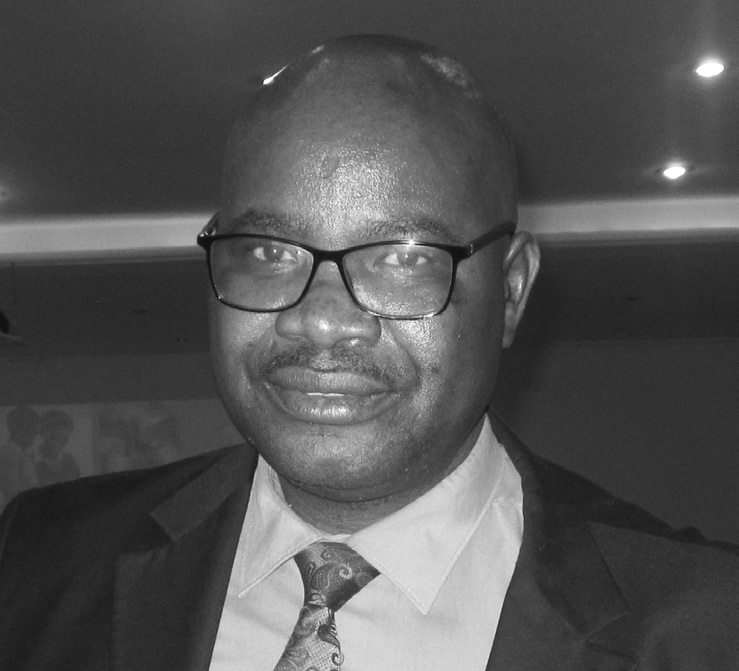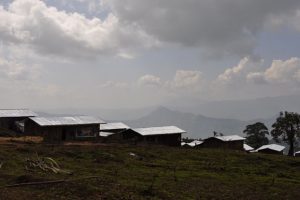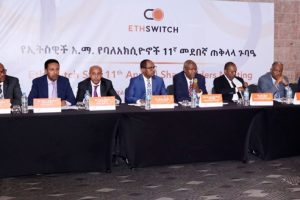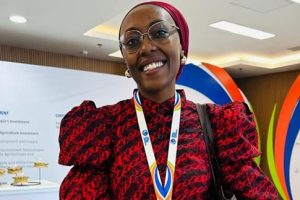
Africa Development Bank (AfDB) group expresses its readiness to continue to do what is best to strengthen project implementations for economic development as well as poverty reduction in Ethiopia.
On procurement workshop hosted here in Addis this week, AfDB Country Manager of Ethiopia’s office, Dr. Abdul Kamara said that the bank has requested to support economic diversification and initiatives that transforms the lives of Ethiopia.
Abdul further noted that following the consultation with the government, the ADF-14 was allocated to energy, transport and basic services transformation programs. As of 30 September, 2019, the bank group’s ongoing portfolio in Ethiopia comprised 24 operations with a total commitment value of about 1.72 billion USD.
As to him, the operations are in the energy, water supply and sanitation, transport, agriculture, governance, and private sectors comprising of 15 public sector projects financed through loans and grants, 3 private sector loans, and 5 trust funds.
He stated that transport and energy sectors account for the largest share of ongoing commitments at 35 percent and 28 percent respectively, followed by water and sanitation, private sector, multi-sector and agriculture.
“The large share of infrastructure, such as energy, transport, water and sanitation, ranks the bank among the leading financiers. The main operations in the transport and energy sectors consist of the Mombasa-Nairobi-Addis Ababa road corridor which is phase III, the Modjo-Hawassa highway project phase I, the Ethiopia-Djibouti transport corridor project, Mekelle- Dallol and Semera-Afdera power transmission project as well as the Addis Ababa transmission and distribution system rehiabitation, upgrading project.” He added.
According to him, the public sector operations include 5 multinational projects, namely, the Mombasa-Nairobi-Addis Ababa road corridor, Ethiopia-Kenya power interconnection project, horn of Africa drought resilience and sustainable livelihoods programs I and II. Under the non-sovereign window, the bank has financed 2 operations which are Derba cement for production of cement and Ethiopian Airlines for purchase of Aircrafts and this account for 15 percent of the total commitments in the country.
Speaking of the relevance of fiduciary clinic workshop, he mentioned that the workshop is a collaborative effort among several bank departments, namely, the African Development Institute, the department of financial control, the department of procurement and fiduciary service, inspection.
The objective of the workshop is to continue and analyze the problems faced by Ethiopia’s projects in order to define and implement a capacity building plan that meets the specific needs of the country. The overall goal is to improve the effectiveness of the implementation of the projects and programs, including developing a mastery of the rules and procedures of both the bank and the country’s unique procedures.
I addition he said that the bank has undertaken show on the issues affecting smooth performance of the projects are due to projects staff not being fully conversant with bank rules and procedures in procurement, financial management and disbursements administration.
He further noted that the African Development Bank considers investment in capacity building as a very highly rated ingredient to project implementation. Therefore, the clinics are a sharp departure from the traditional generic project implementation workshops for presentation of rules and regulations, standards and practices. Real issue must be discussed, real solutions must be provided, and real results must be followed.
Concerning the expected impact of fiduciary clinics, he pointed out that it has enhanced implementation of bank funded projects. The expected outcomes are satisfactory implementation of procurement plans, efficient and effective management of project resources, timely submission of project financial and procurement audit reports, effective implementation of the recommendation action plans conducted by the bank as well as increase volume of project disbursements.
He mentioned that the bank continues to emphasize five main core priority areas for the bank in line with a 10 year strategic plan. The bank unveiled a landmark initiative to accelerate Africa’s development over the next 10 years. Under this initiative, the high-five priority areas are light up and power Africa, feed Africa, integrate Africa, industrialize Africa and improve the quality of life for the people of Africa, that form a blueprint for African countries to embark on a course of sustainable transformation.
Senior Procurement Operations Officer, in Africa Development Bank Group, Dr. Emmanuel Chisesa on his part told The Ethiopian Herald that this is the training session that takes place twice a year.
The concept of fiduciary clinic is being demand driven comment assessment and deliver to improve project financing in Ethiopia. The bank tries to orient the project staffs in the areas of procurement and financial management. In other words, the bank trains the project staffs on financing policy and management.
“Here in Ethiopia, we are doing well. We are doing best on finance disbursement for the implementation of developmental projects. We finances Ethiopia for infrastructural projects. We are working hard in helping the country for road construction, electricity transmission and distribution, social sector, water and sanitation,”.
He also said that “when the government goes to ask finance from the bank for the implementation of other projects beforehand, it has to make sure that the pre-existed projects are finalized and should be cross checked whether the project is implemented with the slated time table.”
The Ethiopian Herald November 24/2019
BY MEHARI BEYENE





